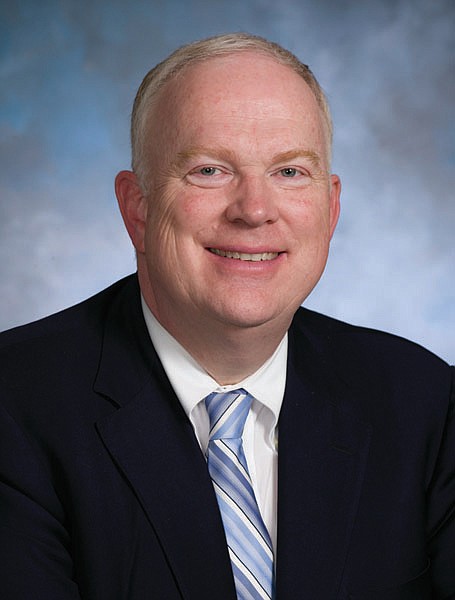During the decade I worked in the governor's office, I looked forward to trips when Marion Burton was flying the plane. Burton, who died in late January at age 93, was not only an internationally recognized aviator, he also was a great storyteller. During trips across the country, I would prompt him to talk about his days with Gov. Winthrop Rockefeller, my favorite figure in Arkansas history.
Burton was born in Little Rock in November 1930. His obituary noted that he was "fascinated by the emerging world of aviation as a boy growing up in the 1930s and 1940s. With the benefit of a Navy ROTC scholarship, he graduated from Penn State in 1952 with a major in physics and minors in mechanical engineering and naval science. After graduation, he went directly into flight training in the U.S. Navy, launching him on his lifelong dream to fly, something that remained at the center of his world for the rest of his life.
"He set lofty goals for himself and his family and held a high standard of intellectual achievement and responsible, ethical action. After serving in the Navy, he went to law school at the University of Michigan, where he completed his degree in 1959. ... Marion returned to Arkansas because he believed that it was the place where he could have the biggest impact."
Those were the dark days of the Faubus era. Rockefeller, who moved to Arkansas in 1953, became the first chairman of the Arkansas Industrial Development Commission in 1955 and had initial success attracting industry to the state at a time when Arkansas was losing population faster than any state in the country.
Rockefeller's early success at AIDC came to a halt with the negative worldwide publicity the state received after Faubus blocked nine Black students from entering Little Rock Central High School in the fall of 1957.
The stains of the 1957 desegregation crisis were still fresh when Burton returned home. Rockefeller had decided that Arkansas needed a two-party system, and Burton was determined to help him achieve that goal. Rockefeller was impressed with Burton's intellect and energy. By the time Rockefeller decided to take on Faubus in 1964, Burton had become one of his key advisers.
Faubus won a sixth two-year term, but Rockefeller never really stopped running. Seeing the handwriting on the wall, Faubus decided not to seek a seventh term in 1966. Rockefeller defeated Democratic nominee Jim Johnson and became Arkansas' first Republican governor since Reconstruction.
Burton's obituary read: "When Marion served as campaign director [in 1966], he was instrumental in identifying and putting into place computer technologies that had become available to target and address letters to voters, the first time this was done in a political campaign. It took an IBM computer the size of a room to do what we can now do on a cell phone."
Burton also served as Rockefeller's pilot, landing at all hours and in all kinds of weather on a runway adjacent to Rockefeller's ranch atop Petit Jean Mountain. Rockefeller purchased a Saberliner business jet soon after the line was introduced by North American Aviation in the 1960s. Saberliner production ended in 1981.
Rockefeller later purchased a Falcon jet. That business relationship led to Dassault Falcon opening a completion facility in Little Rock in 1975. Facilities at Clinton National Airport receive aircraft produced in France. Workers then install avionics and custom interiors while exteriors are custom-painted. Last year, the company announced an expansion that will add 800 jobs to its current workforce of 1,400 people. It's the largest Falcon facility in the world.
As a pilot, Burton set several world speed records for commercial business jets, including one for crossing the Atlantic Ocean. With his trademark mustache, Burton looked the part of the dashing aviator. He was never one to brag, however. I had to pull stories about setting speed records out of him. It was worth the effort since Burton had an uncanny ability to remember the smallest details.
After Rockefeller died of cancer in February 1973, Burton was appointed a co-executor of his estate and a trustee of the Winthrop Rockefeller Charitable Trust. When Riverdale Country Club moved west to become Pleasant Valley Country Club, Rockefeller began developing the Riverdale area in late 1968. Burton continued those efforts after Rockefeller's death, leading to tens of millions of dollars of investment in an area that would house the Alltel corporate campus.
In addition to his business activities, the indefatigable Burton was a civic leader. He served on the boards of the Experimental Aircraft Association, Little Rock YMCA, Winrock International, Arkansas Aerospace Education Center, University of Arkansas at Little Rock Foundation, Arkansas Arts Center Foundation and Arkansas Aviation Historical Society.
Burton retired from the Navy Reserve with the rank of captain and was awarded the Wright Brothers Master Pilot Award by the Federal Aviation Administration.
Burton should be remembered most, however, with helping Rockefeller lead Arkansas into the modern era. It took courage to become a Republican in 1959, and it took courage to take on Faubus and his cronies. I'm thankful Rockefeller, a transplant from New York, was able to find young Arkansans willing to help him drag our state into the New South.
Saddled by voters with our worst governor and Legislature since the Faubus era, Arkansans must pray there's a new generation of Marion Burtons ready to aid their native state.
Senior Editor Rex Nelson's column appears regularly in the Arkansas Democrat-Gazette. He's also the author of the Southern Fried blog at rexnelsonsouthernfried.com.
